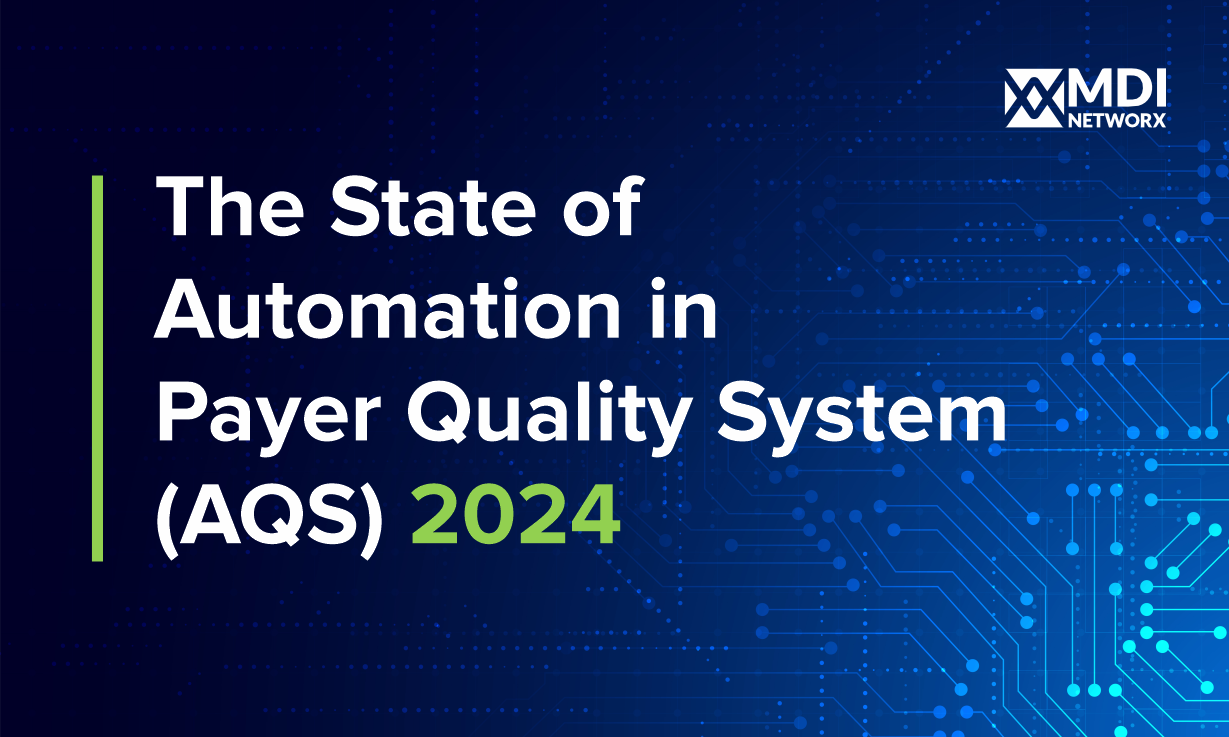Industry trends indicate that Insurance claims have been steadily increasing in volume over the years, and the trend is likely to continue. In such a scenario, Healthcare Claims Processing Companies that still rely on a manual Claims Adjudication System will find themselves falling behind the competition on numerous fronts.
To stay ahead of the competition, the strategy Healthcare Claims Processing Companies will need to adopt as their go-to-market strategy, will rest on three initiatives;
- Improving the First Pass Resolution rate based on the RFT (Right First Time) quality paradigm
- Reducing FWA (Fraud, Waste & Abuse) at the pre-adjudication stage, and
- Improving the level of automation in the Claims management process to reduce and/or prevent manual intervention.
Not only will opportunity costs increase, without introducing a significant level of automation in their Adjudication process, but also burden the workforce with an ever-increasing workload and backlogs that will impact the reputation and reliability of the Company viz. the competition.
The traditional approach of relying primarily on human intervention into the process also increases chances of potential errors and incomplete or inaccurate data holding up unresolved claims in the system for long periods of time. This increases the likelihood of adding multiple touch-points to process a claim, not to mention handling increasingly complicated and time-consuming Appeals.
All this additional effort, rework and higher turnaround time to process claims translates into increased processing cost per claim, a reduced bottom-line and seriously undermines Payer-Provider relationships in a highly competitive market.
The need of the hour, therefore, is to improve the first pass data accuracy and use of an “intelligent and perceptive adjudication methodology” in claims processing, that can intuitively handle the task without the need for human intervention.
One of the more cost-effective ways to sidestep these potential hazards is by partnering with a technology Provider Service with a specialization in Healthcare and capable of offering an intelligent claims automation solution at every stage of the Claims workflow, including data-capture, pre-adjudication cleanup and Adjudication. Not only will this simplify processes, but you will notice an almost immediate saving in cost, time and effort.
Auto-Adjudication: Seamless Claims Processing Solution
When a medical claim is filed, it is sent to the insurance carrier for approval. The process of establishing whether a claim will be paid or denied is called adjudication. When you bring claims automation in the picture, you minimize the review process significantly. What this means is that claims are reviewed and approved more quickly by the system without relying on human intervention to do the job.
A Healthcare Claims Adjudication Software that uses a computer system to enter, review, calculate, and process medical claims and does all this with nearly zero human interference, forms the backbone of any Automated Claims Adjudication System. All the Payer needs to do is clearly define the rules and parameters on the basis of which, the system will process the claims. This results in faster Medical Claims Processing, more accurate adjudications, and consequently less manual work.
Understanding Auto-Adjudication
A typical claims adjudication software is designed to streamline your claims process and to deliver results faster, more accurately and with minimal human intervention. The components of the Claims Adjudication software include:
- Rules-based engine: This enables automation of all workflows for Claims Adjudication, auto-adjudication, enrollments, eligibilities, benefits administration, premium billing, etc.
- Flexible API integration: With this component, payers can connect all enterprise-wide systems and achieve complete interoperability between them.
- Agile technology: This is built on service-oriented architecture and aids in delivering scalable, enhanced transaction processing.
- Automated batch re-adjudication capabilities: This helps streamline workflows for claim reprocessing projects.
How does Auto-Adjudication really work?
We’ve already stated the many advantages of auto-adjudication for Payers. Here’s a closer look at the benefits in the actual process.
- Increased Security: the adjudication program can flag invalid claims and help minimize the rate of fraud.
- Format neutral: Claims in different formats, such as EDI files, scanned claims, etc. can all be processed effortlessly.
- Efficient Validation: Rule-based configurations make it easier to authenticate eligibility requirements and authorize medical services accurately. Not only several type of automatic validations can be incorporated in the system, but a further verification process can be introduced when to handle situations beyond the scope of the defined parameters and business logic.
- Greater accuracy: Payments for copays and deductibles are calculated instantly and accurately. Additionally, with the right auto-adjudication solution, you can even streamline your administrative processes.
- Productivity Enhancement: You will notice an immediate increase in productivity with Claims Auto-Adjudication, authorization verification, and referral management processes.
- Customizable Dashboard & Data Analytics: An easy-to-use and personalized dashboard, gives you visibility across all stages of the production helping you manage distribution of workload and control of your Process. It further provides you with on-demand, run-time data to manage your Operations, workforce deployment, and adherence to service levels efficiently. You are also able to make secure and calculated decisions using reliable risk stratification and predictive analytics tools.
How does auto-adjudication benefit employers?
There is definite merit in auto-adjudicating claims, and the decision to shift from manual processes to technology can only positively impact employers. Incorporating the latest technology can benefit Payers through:
- A significant cost reduction: Through the reduction in processing incorrect or fraudulent claims, there is a definite drop in cost to the company by optimizing the workforce, either by streamlining the number of resources or reassigning people to handle other areas and aspects of the Business.
- Greater accuracy in processing: With pre-set rules, auto-adjudication helps maintain full compliance with benefits rules when reviewing claims faster and more accurately as compared to manual adjudication. This means your employees can now show better results and enhanced performance levels with minimal effort, leading to increased job satisfaction, reliability and retention, saving costs.
Conclusion
Auto-adjudication software is definitely a boon to Healthcare Claims Processing and has been shown to improve efficiency by keeping up with the rising demands of the healthcare industry. However, as with any technology, it is prone to breach, fraud or miscalculation in terms of setup costs, timelines, and delivery, and thus it is always better to partner with the a Claims Automation Solution Provider Service that has a well-defined, proven track record of implementations.




